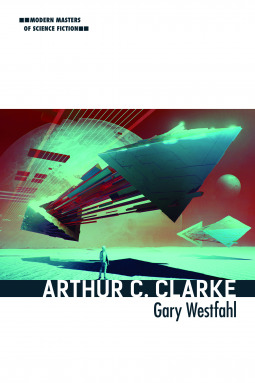 I admit I’m probably not the intended audience for this book. I’ve read H.G. Wells’ The Time Machine and War of the Worlds, and I’m very interested in the history of science fiction, but I’m not as well versed in his broader body of work. Sarah Cole’s Inventing Tomorrow is an academic study of Wells’s writing that takes him seriously as an early 20th century author. Not an early 20th century science fiction author – just an author. Continue reading ““Inventing Tomorrow” by Sarah Cole”
I admit I’m probably not the intended audience for this book. I’ve read H.G. Wells’ The Time Machine and War of the Worlds, and I’m very interested in the history of science fiction, but I’m not as well versed in his broader body of work. Sarah Cole’s Inventing Tomorrow is an academic study of Wells’s writing that takes him seriously as an early 20th century author. Not an early 20th century science fiction author – just an author. Continue reading ““Inventing Tomorrow” by Sarah Cole”
Tag: biography
“George Orwell: A Life” by Bernard Crick

The name “Orwell” is more closely associated with dystopia visions of the future than with a man who lived and breathed. Ever since the publication of 1984, we’ve used the term “Orwellian” to describe suffocating oppression in totalitarian regimes. Yet, George Orwell’s life and political philosophy was more than a condemnation of totalitarianism, as notable as that condemnation was. Bernard Crick’s biography of Orwell – the first of its kind when it was published in 1980 – attempts to understand the man and his works. Continue reading ““George Orwell: A Life” by Bernard Crick”
“Becoming Dr. Seuss” by Brian Jay Jones
 Brian Jay Jones is quickly becoming the foremost chronicler of the lives of American pop culture icons. His biography of Jim Henson is one of my favorite books of the past decade. His treatment of George Lucas wasn’t quite as insightful, perhaps because there have already been many other books about Lucas and Star Wars. His latest book, Becoming Dr. Seuss: Theodor Geisel and the Making of an American Imagination, looks at a very different creative genius. Continue reading ““Becoming Dr. Seuss” by Brian Jay Jones”
Brian Jay Jones is quickly becoming the foremost chronicler of the lives of American pop culture icons. His biography of Jim Henson is one of my favorite books of the past decade. His treatment of George Lucas wasn’t quite as insightful, perhaps because there have already been many other books about Lucas and Star Wars. His latest book, Becoming Dr. Seuss: Theodor Geisel and the Making of an American Imagination, looks at a very different creative genius. Continue reading ““Becoming Dr. Seuss” by Brian Jay Jones”
“Arthur C. Clarke” by Gary Westfahl

Of the “Big Three” authors who dominated the Golden Age of science fiction, I’ve always felt I had the weakest grasp on Arthur C. Clarke. Isaac Asimov’s oeuvre is easy to summarize: technological optimism and robots. Robert A. Heinlein tended to infuse his works with libertarian politics and nonconformists. As for Clarke? I’ve read several of his most famous novels and short stories, but always struggled to identify common themes. Clarke seems to veer wildly between hard-nosed science and wild-eyed mysticism. Childhood’s End features humans who gain almost godlike psychic powers, while Rendevouz with Rama tells the story of a scientific exploration to a mysterious alien object. Hal 9000 in 2001: A Space Odyssey seems like a warning against A.I., yet Clarke was hardly anti-science – most of Clarke’s protagonists are scientists. Continue reading ““Arthur C. Clarke” by Gary Westfahl”
“George Lucas” by Brian Jay Jones
I read Brian Jay Jones’ biography of Jim Henson when it first came out and found myself captivated. Jones conveyed Henson’s passion for his work and his joie de vivre. When I saw that Jones had written a book about George Lucas, I was cautiously optimistic. I was interested to see what somebody with Jones’ talent could do with one of the most influential filmmakers in history. On the other hand, I wondered if the world really needed another biography of George Lucas. Continue reading ““George Lucas” by Brian Jay Jones”
